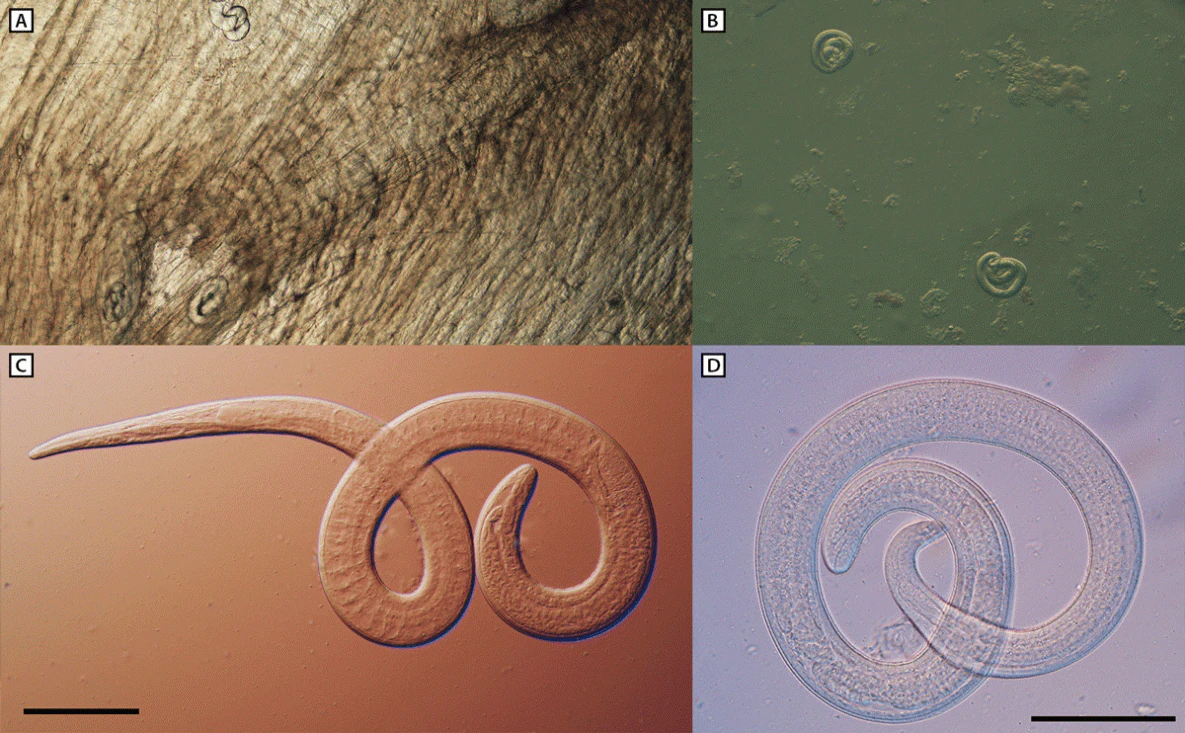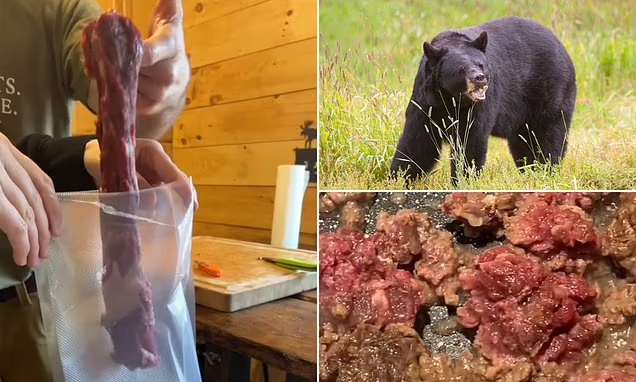A family gathering where bear meat was served has led to several cases of brainworm infections among attendees, according to a new report from the Centers for Disease Control and Prevention (CDC).
Details of the Incident
In July 2022, the Minnesota Department of Health was alerted when a 29-year-old man was repeatedly hospitalized over two-and-a-half weeks. He exhibited symptoms including fever, severe muscle soreness, swelling around the eyes, and other ailments.

After his second hospitalization, he disclosed attending a family gathering in South Dakota where kabobs made from black bear meat, harvested in northern Saskatchewan, were served. The meat, frozen for a month and a half, was initially served rare due to its darker color. After realizing it was undercooked, it was recooked and served again. Nine family members, mostly from Minnesota, South Dakota, and Arizona, ate the meal, with some consuming only the vegetables served alongside the bear meat.
Diagnosis and Treatment
Doctors diagnosed the 29-year-old with trichinellosis, a rare roundworm infection in humans often acquired through the consumption of undercooked wild game. The larvae can migrate through the body to muscle tissue and organs, including the brain. Five other family members, including a 12-year-old girl and two who only consumed vegetables, were also diagnosed. Three were hospitalized and treated with albendazole, which prevents the worms from absorbing sugar, causing them to lose energy and die.

Prevention and CDC Advice
The CDC emphasizes that cooking meat to an internal temperature of at least 165 degrees Fahrenheit is essential to kill trichinella parasites and prevent cross-contamination with other foods. Estimates suggest up to one-quarter of black bears in Canada and Alaska may be infected.
